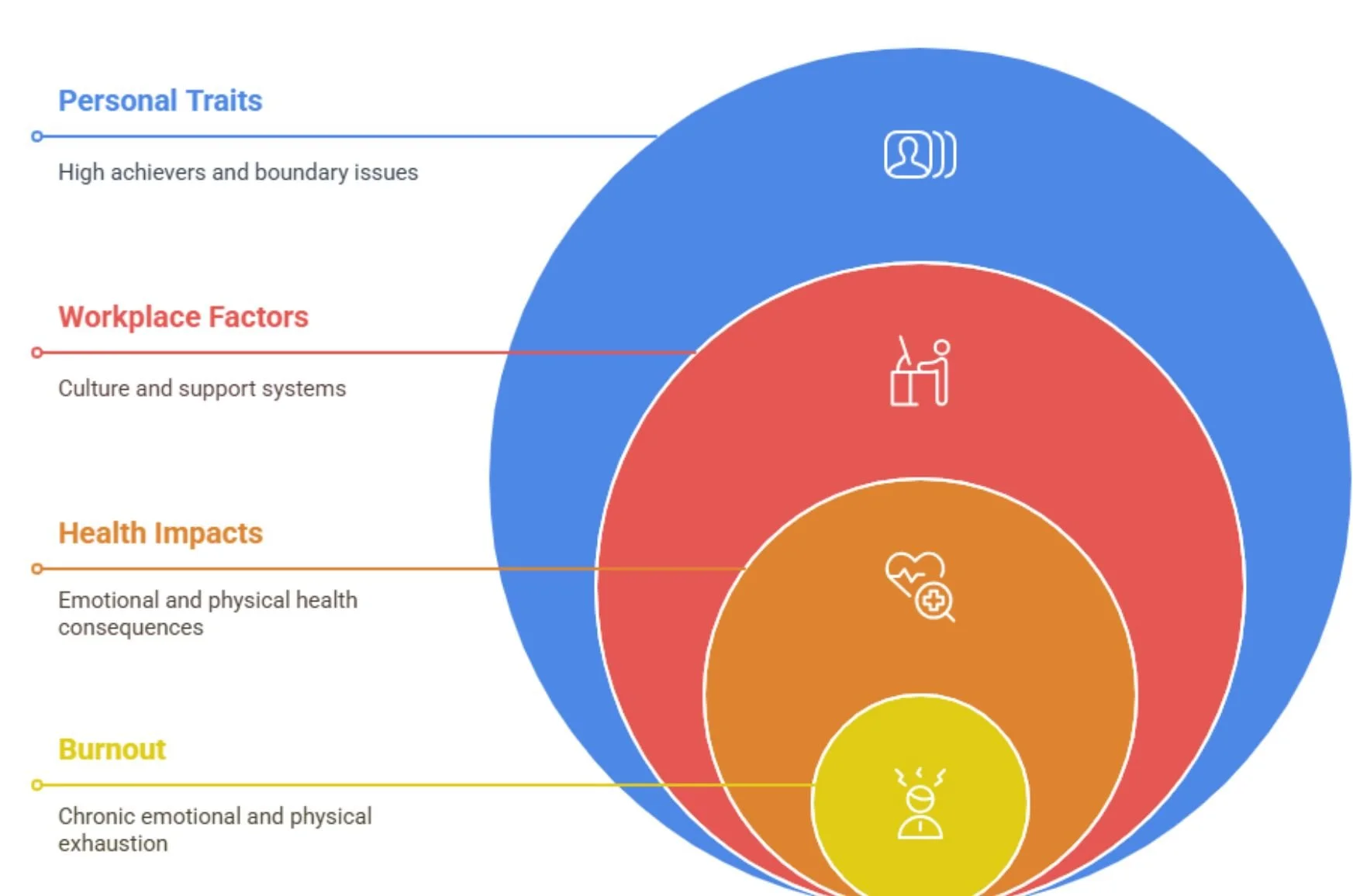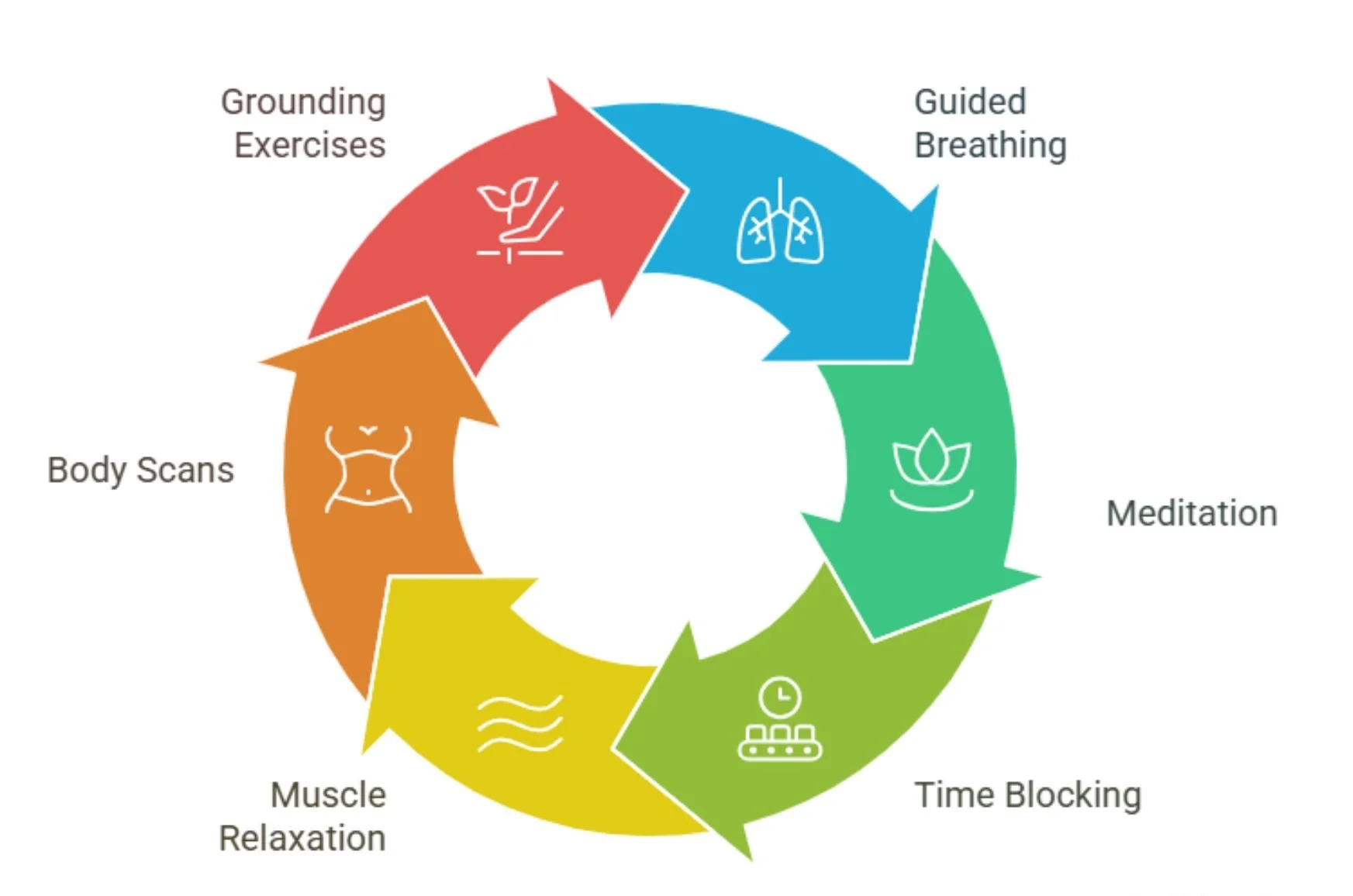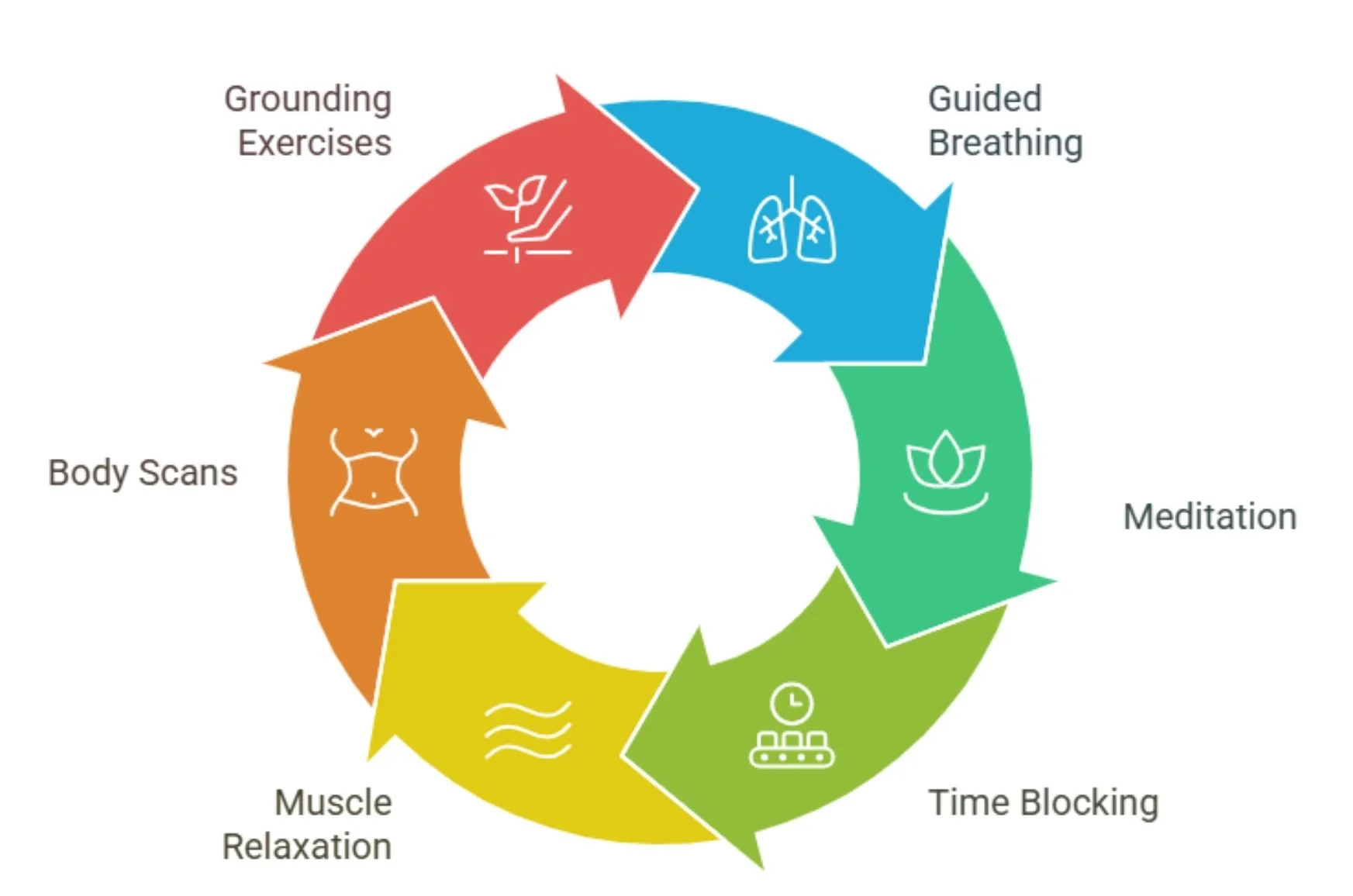The Role of Health Coaches in Managing Burnout
Burnout isn’t just about being tired — it’s a serious condition that affects mental, physical, and emotional well-being. In our fast-paced world, more people are experiencing burnout than ever before, and health coaches have become a powerful ally in helping individuals recover and thrive.
Understanding Burnout
Burnout is the result of long-term, unrelieved stress. It manifests through emotional exhaustion, a reduced sense of accomplishment, and depersonalization. Common causes include intense work pressure, lack of control, poor work-life boundaries, and unhealthy workplace environments. Burnout affects not only the mind but also the body, contributing to health issues like high blood pressure, sleep disorders, heart disease, and depression.
Symptoms often include chronic fatigue, insomnia, irritability, forgetfulness, and detachment from work or personal life. Recognizing these early warning signs is critical to prevent deeper health consequences.
10 Key Points About Burnout
Burnout is chronic, not situational – It builds up over time and doesn’t go away with a weekend off or short break.
It impacts both emotional and physical health – From brain fog and mood swings to cardiovascular problems.
Workplace culture plays a major role – Lack of support or toxic environments often trigger or worsen burnout.
Not just a “mental health” issue – Burnout can lead to immune suppression, digestive issues, and hormonal imbalances.
High achievers are more at risk – Perfectionists and people-pleasers are particularly prone to burnout.
It often goes unnoticed – People may normalize exhaustion and ignore their body’s warning signs.
It affects productivity and creativity – Burnout can lead to underperformance, apathy, and lack of innovation.
Poor boundaries are a root cause – Saying yes too often or skipping breaks accelerates burnout.
Digital overload worsens burnout – Constant notifications, emails, and screen time fuel mental exhaustion.
Recovery is possible – With the right support, lifestyle changes, and tools, people can fully recover and build resilience.
How Health Coaches Help
Health coaches are certified wellness professionals who guide individuals toward better health outcomes by focusing on holistic, personalized strategies. Their approach goes beyond traditional fitness or nutrition advice — they look at the full picture, including stress levels, sleep habits, work-life balance, and mindset.
These professionals work closely with clients to understand their specific burnout triggers and create tailored plans. Whether someone is dealing with workplace stress or juggling personal responsibilities, a coach helps them set achievable goals, manage their energy, and build sustainable habits.
Stress Management & Mindfulness Techniques
Health coaches teach clients how to manage stress with practical techniques like guided breathing, meditation, time blocking, and progressive muscle relaxation. These tools not only improve emotional stability but also build long-term resilience.
Mindfulness plays a key role here — regular meditation and awareness practices help improve focus, reduce anxiety, and foster emotional clarity. Coaches often incorporate simple daily rituals like body scans or grounding exercises that promote a calmer mindset.
Creating a Work-Life Balance
One of the biggest contributors to burnout is poor work-life balance. Health coaches help clients identify imbalance in their routines and implement practical strategies like scheduling downtime, setting boundaries, and redistributing tasks. Even small changes, like setting a device curfew or prioritizing weekly rest days, can make a significant impact.
Exercise & Physical Wellness
Movement is medicine, especially for burnout. Coaches recommend physical activities based on an individual’s energy levels and preferences — from restorative yoga to running or resistance training. Exercise supports the release of endorphins, regulates cortisol levels, and boosts mood.
What sets a coach apart is their ability to keep clients motivated. By setting small, measurable goals and celebrating progress, health coaches build confidence and momentum.
Nutrition for Energy & Mood Support
What we eat significantly affects how we feel. Health coaches create balanced meal plans that support brain health, stabilize blood sugar, and boost mood. Foods rich in omega-3s, B-vitamins, and antioxidants are especially beneficial. They also help clients reduce stimulants and processed foods, which can worsen stress and fatigue.
Better Sleep for Recovery
Sleep is essential for recovering from burnout. Health coaches provide strategies to improve sleep hygiene, such as maintaining consistent bedtime routines, minimizing blue light exposure, and incorporating relaxing wind-down rituals. Adequate sleep improves concentration, emotional balance, and physical recovery.
Building Resilience for the Future
One of the most powerful aspects of Health Coach Certification is teaching resilience. This includes helping clients shift their mindset, adopt problem-solving techniques, and view challenges as growth opportunities. A resilient person is better equipped to handle future stressors and avoid relapse into burnout.
Long-Term Goal Setting & Accountability
Using tools like SMART goals (Specific, Measurable, Achievable, Relevant, Time-bound), health coaches support clients in setting clear, realistic objectives. They track progress over time and adapt strategies as needed, offering encouragement and accountability every step of the way.
Support Systems and Social Connection
Having someone in your corner is vital when managing burnout. Health coaches not only provide this one-on-one support, but also encourage clients to strengthen their broader support network — including family, friends, or peer groups. This sense of connection plays a big role in emotional healing.
6 Lesser-Known Facts About Burnout & Health Coaching (2025)
Burnout now affects nearly 70% of U.S. professionals at some point in their careers, with Gen Z reporting the highest levels of stress.
Digital burnout (caused by screen overload and online meeting fatigue) has become a growing concern post-2020, and health coaches now often include "digital detox" strategies.
Gut health and burnout are more closely linked than previously thought — poor gut microbiome balance can worsen anxiety and fatigue.
Health coaching is now covered by some U.S. employers and insurance providers as part of workplace wellness initiatives.
AI-assisted wellness tracking (like wearable integration and stress monitoring apps) is being used by modern coaches for real-time feedback.
Burnout in caregivers and parents is rising, and health coaches are increasingly specializing in family-based stress management solutions.
Conclusion
Burnout is a growing concern in today’s fast-paced world, impacting both mental and physical well-being. It goes far beyond just feeling tired—it’s a deep, chronic state of stress that can lead to serious health consequences if left unaddressed. Fortunately, with greater awareness and the support of trained professionals like health coaches, individuals can identify early warning signs, build resilience, and create sustainable lifestyle changes.
At ANHCO, we recognize the critical role that health coaches play in guiding people through the challenges of burnout. Our team is committed to providing personalized, holistic support to help clients regain balance, boost energy, and make meaningful, long-lasting changes. Through one-on-one coaching, practical tools, and compassionate accountability, ANHCO helps individuals take control of their well-being and thrive, both at work and in life.
FAQS
-
Health coaches provide personalized strategies to manage stress, improve sleep, establish boundaries, and create sustainable wellness routines to reduce burnout symptoms.
-
They use goal setting, mindfulness practices, habit tracking, lifestyle modifications, and motivational interviewing to support recovery and prevent future burnout.
-
Anyone feeling overwhelmed—professionals, caregivers, students, or entrepreneurs—can benefit from health coaching to regain energy, focus, and life balance.
-
Yes. Health coaches often collaborate with therapists or doctors, complementing clinical care with lifestyle and behavioral support tailored to each client.
-
Absolutely. Online sessions offer flexibility and accessibility, allowing clients to receive consistent support from the comfort of their home or office.
-
Results vary, but many clients notice improvements in energy, mindset, and stress levels within a few weeks of consistent coaching and applying new habits.




